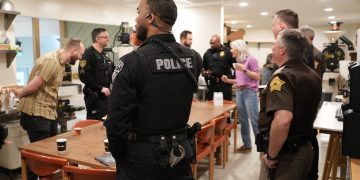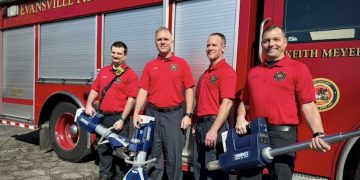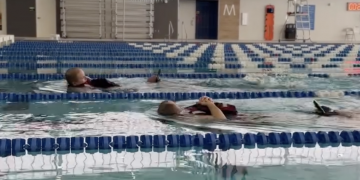MADISON, Wis. — Wisconsin will become one of only 10 states without statewide mask mandates when the Assembly votes Thursday to overturn Gov. Tony Evers’ order, but masks will still be required in some of its largest cities thanks to local ordinances.
More than two dozen public health organizations, as well as state and local health officials, have urged the Republican-controlled Legislature to reconsider the scheduled vote. Wearing masks is one of the pillars of recommendations from health experts worldwide to slow the spread of the coronavirus, along with physically distancing and avoiding crowds.
The move comes as Wisconsin lags in distribution of coronavirus vaccines, health officials warn about the spread of contagious new variants and total deaths due to COVID-19 near 6,000.
“This is no time to remove a mask mandate in our state,” said Wisconsin Department of Health Services Deputy Secretary Julie Willems Van Dijk on Tuesday. Vaccines alone won’t stop the spread, she cautioned, noting the emergence of more contagious variants.
Republican lawmakers contend that Evers exceeded his authority by issuing multiple health emergencies, and mask orders, rather than coming to the Legislature for approval every 60 days. The issue is also being argued before the Wisconsin Supreme Court.
State law gives the Legislature the power to overturn emergency orders issued by the governor, a move that does not require the governor’s approval to take effect. The state Senate voted 18-13, with all Democrats and two Republicans against, to overturn the order on Tuesday. The Assembly scheduled a final vote on Thursday.
All of Wisconsin’s neighbors have some form of statewide mandate, according to the National Academy for State Health Policy. The nearest states to Wisconsin without any order are North and South Dakota and Missouri.
Even if Wisconsin’s statewide order goes away, Milwaukee and Dane Counties — the state’s two most populous counties — and cities including Green Bay, Beloit, Racine, Superior and Whitewater have their own mask orders in place. Several rural counties have also enacted mask mandates.
Republicans who voted to repeal the statewide ban argue that life won’t change much because businesses, schools, health care clinics, churches and other places will still require people to wear masks, and individuals are free to choose to wear a mask.
Republican Assembly Speaker Robin Vos controls the agenda of the Assembly. He released a public service announcement last month urging people to wear masks, but he also signed onto a lawsuit challenging Evers’ authority to issue repeat emergency health orders and mask mandates.
Most Republicans in the Legislature do not wear masks when the Senate and Assembly are in session. Some who do still remove their masks when they speak on the microphone.
State Sen. Rob Cowles, from the Green Bay area, was one of two Republicans who voted against repealing the mandate in the Senate. He said that while businesses may continue to require masks to be worn, individuals should mask up voluntarily.
“We can control COVID-19 by just caring about the health and well-being of our families, friends, coworkers, neighbors, and fellow community members,” he said.
Supporters of the mask mandate worry that removing it will create confusion, put more people at risk of catching the virus and send the wrong message to the public about the importance of wearing masks, opponents argue.
Republican opponents of the order argue the issue is about Evers and his powers as governor, not public health. Evers could always come to the Legislature and ask for an extension of his health order that would allow for the mask mandate to stand, they argue.
The Legislature could also proactively pass a statewide mask mandate, but Republicans have shown no interest in that. Instead, they are pursuing a variety of bills at odds with Evers’ requested action.
Wisconsin has had a statewide mask mandate in effect since August. The current Evers order is scheduled to run until March 20.

















































































